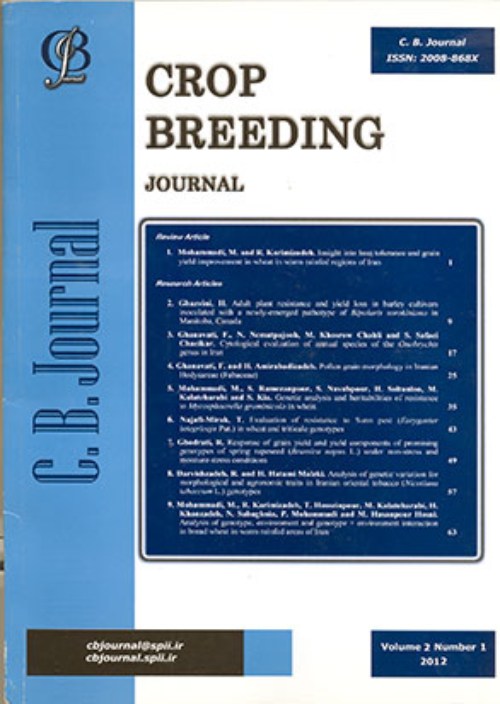Evaluation of soybean genotypes under moisture stress conditions
Author(s):
Abstract:
Seed yield in soybean (Glycine max L.) is a function of moisture availability and is highly related to environmental conditions such as rainfall and irrigation. This study aimed to investigate differences among soybean lines and varieties in terms of phenology, above ground dry matter, seed yield, and yield components under different moisture regimes conditions, and to analyze the relationship between phenological characteristics and seed yield. Forty soybean genotypes were grown in two field experiments exposed to different irrigation regimes for three growing seasons (20102012). Results showed that variation in the duration of phenological stages was a determinant factor in increasing seed yield. There was a positive linear relationship between days to flowering and number of pods per plant, explaining 79 and 74% of the variation in seed yield under control and stress conditions, respectively. For both control and stress conditions, number of seeds m-2 was correlated with days to flowering and pod set. There were both linear positive and polynomial relationships between days to maturity and above ground dry matter at maturity, explaining 84 and 74% of the variation under control and stress conditions, respectively. These results suggest that soybean breeding programs in Iran should focus more on the duration of phenological stages in developing superior soybean genotypes for both stress and optimal conditions.
Keywords:
Language:
English
Published:
Crop Breeding Journal, Volume:6 Issue: 2, Summer-Autumn 2016
Pages:
51 to 57
https://magiran.com/p1615773


